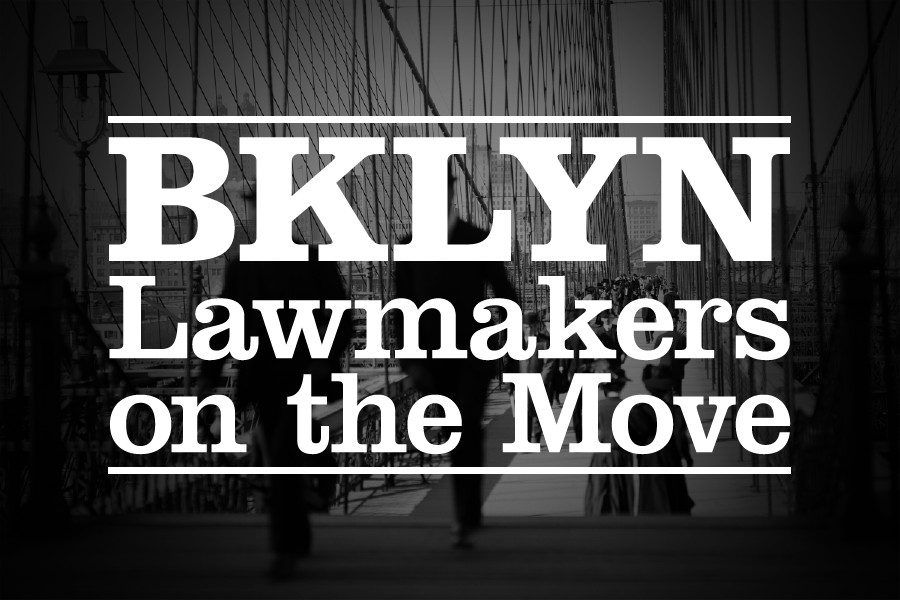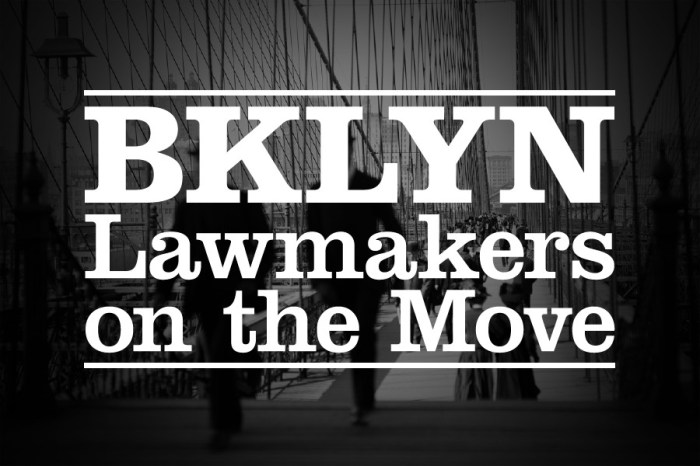Zellnor Spearheads Letter Demanding Answers on why FBI in Brownsville

State Sen. Zellnor Myrie (D-Brownsville, Crown Heights, East Flatbush, Gowanus, Park Slope, Prospect Heights, Prospect Lefferts Gardens, South Slope, Sunset Park), yesterday released a letter he sent to New York City Police Department Commissioner Dermot Shea, along with Mayor Bill de Blasio demanding answers to recent reports of a collaboration effort in Brownsville between the NYPD and the Federal Bureau of Investigation.
Also signing onto the letter were U.S. Reps. Hakeem Jeffries (D-Brooklyn, Queens) and Yvette Clarke (D-East Flatbush, Central Brooklyn), Assemblywoman Latrice Walker (D-Brownsville) and Council Member Alicka Ampry-Samuel (D-Bedford-Stuyvesant, Ocean Hill-Brownsville, East Flatbush, Crown Heights).
The 73rd Precinct has seen a large uptick in both murder and shootings, which crime enforcement agencies attribute largely to gang activity and state bail reform laws that they feel contribute to alleged violent criminals staying on the streets of the neighborhood.
“This coordination between the NYPD and the FBI within the 73rd Precinct, seemingly disclosed through the media, raises multiple questions:
- When did this partnership begin? What is its anticipated duration?
- With whom did this partnership originate? What approvals were required to initiate this partnership at both the NYPD and the FBI? Which offices and individuals are charged with overseeing this partnership?
- What are the parameters of this partnership? How were the involved precincts, identified in the reporting at the 73rd and the 75th, selected? Are other precincts involved in similar partnerships? Please provide any process documents, MOUs or other materials outlining the nature of this partnership.
- What data on arrests is shared with the FBI? Are all, or only some, arrests scrutinized by the FBI for possible federal charges? How is that determination made on an arrest-by-arrest basis? What steps are involved with making the decision to refer arrests to the FBI for additional scrutiny, and who is involved with each step in that process?
- Was the public notified in advance of the start of this partnership?
- How does this partnership comply with state law?
- There were no changes made to state law regarding the request of bail for charges that include firearms. Our understanding is that the District Attorney’s office almost universally requests bail in these types of cases. Why, then, would the NYPD attribute their collaboration with the FBI to the state’s bail laws?
We request answers to our questions above no later than 5 p.m., Friday, September 18. We appreciate your prompt attention to this matter and look forward to hearing from you,” they wrote.
Rose Unveils “March To Common Ground” Package

U.S. Rep. Max Rose (D-Southern Brooklyn, Staten Island) joined bipartisan Members of Congress from the Problem Solvers Caucus to unveil its “March To Common Ground” framework to help break the gridlock on the latest COVID-19 relief package and encourage negotiators to get back to the table.
The package addresses key areas of need, including COVID-19 testing, unemployment insurance, direct stimulus, worker and liability protection, small business and non-profit support, food security, schools and child care, housing, election support, and state and local aid.
“What we’re showing today is a deal is not only possible, but more importantly, a deal must be possible because failure is not an option,” said Rose. “This isn’t a game. This isn’t a red state or a blue state issue. This is an American issue and we must come together as Americans and get the job done: to give our state and local governments the aid they need to ensure our cops, firefighters, EMS, teachers and essential workers aren’t laid off; to provide our struggling businesses the lifeline they need to stay in business and keep employees on the payroll. We must come together to do the job we all know needs to be done.”
Malliotakis on Israel Peace Deal

Assemblymember Nicole Malliotakis (Bay Ridge, Staten Island) released a statement on the White House signing the Israel-UAE-Bahrain Peace Deal.
Assemblywoman Nicole Malliotakis said, “Today, the world witnessed a historic moment when leaders from Israel, the United Arab Emirates and Bahrain met with President Trump at the White House to sign agreements that will formalize a continued path towards peace in the Middle East. The signing of today’s accords opens the door for conversations between Israel and other nations in the region that realize the time for peace has come. President Trump and his administration should be congratulated for their hard work in brokering these agreements and for a foreign policy that is proactive in its efforts to achieve world peace.”
Kavanagh, Lander Support Small Business Legislation


State Sen. Brian Kavanagh (D-Northern Brooklyn, Lower Manhattan) and City Councilmember Brad Lander (D-Park Slope, Windsor Terrace, Gowanus, Kensington) yesterday joined other lawmakers and small business owners in Manhattan’s Chinatown to rally in support of the Small Business Recovery Lease Act (S8904/A10936 here).
The bill seeks to help relieve small businesses from crushing rent bills by providing a property tax incentive to landlords who enter into “recovery leases” that address past-due rent and cap future rent increases.
The New York Hospitality Alliance found in a survey that 83% of restaurants were unable to pay full rent in July. The Brooklyn Chamber of Commerce reported that more than half of businesses surveyed are worried about staying open, and just 20% have been able to negotiate some form of rent relief with their landlord. Now, after months of closures and reduced revenues, mounting rent bills are one of the major hurdles to keeping small businesses afloat.
“The public health crisis has become a full-blown economic crisis as well,” said Kavanagh. “Individual businesses and whole neighborhoods are in jeopardy. This legislation is not a panacea and we know that much more needs to be done to assist small business owners and property owners. But I believe that recovery leases will provide our local businesses with one significant path to relief and offer them some much needed long-term security.”
“So many of our businesses were facing challenges of rent affordability before, now they’re facing giant arrears and overwhelming anxiety about the future,” said Lander. “With federal relief uncertain, we cannot wait to take action to help small businesses and others get through this crisis. Recovery leases should be one tool in our toolbox to help small businesses lock in rents at stable, lower rates for long-term affordability that will be essential for the rebuilding and recovery yet to come.”















